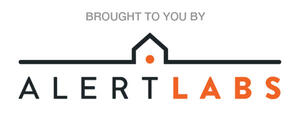HABITAT
Problem Solved: Heat Pumps Put an End to Uneven Heating and Cooling

As part of our Problem Solved series, Habitat spoke with Ben Milbank, a senior project development engineer at Ecosystem.
The problem. In 2017, the board at a prewar co-op building near Union Square started looking at options to improve its existing infrastructure. When one side of the building needs heating, and the other side needs cooling. A lot of the infrastructure was past its useful life, and there had been some reliability issues and some costly repairs. So they really wanted to get on top of any future assets that will need work and turn that into an investment.
When they first called us, they had heard a little bit about geothermal, and they wanted to explore options on that front. We took a look at the building and found that it would be very costly. Ultimately that wasn't feasible.
Time to shift gears. We took a step back and looked at what they were trying to solve, what problems they had, and how to expand these beyond simple fixes. The building had a lot of comfort issues. They effectively have a switchover system that provides either heating or cooling, but never both. So twice a year the residents of the building were actually at war with each other over whether the building should be in heating mode or cooling mode. After taking that step back, we asked what's important, what should we be trying to solve?
A plan emerges. So we were looking at three challenges: replace those existing assets, eliminate some of the comfort issues and actually make the building less operationally complex. Effectively twice a year, the building staff had to be very diligent about switching over that heating and cooling system. In 2018, we made an additional pivot and asked: How do all these issues fit in with the Climate Mobilization Act?
This act, specifically Local Law 97, is trying to force buildings away from fossil fuel-based systems and onto electricity-based systems. So we needed to implement some sort of heat-pump technology in this project while also solving some of those other issues. We looked at how to fully electrify this building. One of the solutions we came up with is what we're calling the Prius approach, which is a hybrid-based system. Another solution, which is the Tesla approach, is a fully electrified system. So this Prius approach, as I've coined it, is actually implementing air-to-water source heat pumps, combined with highly efficient gas boilers. What that's enabled us to do is install 60% fewer heat pumps than we would have needed if we were trying to make that building a Tesla.
(Like what you're reading? To get Habitat newsletters sent to your inbox for free, click here.)
The broiling and freezing conundrum. The building’s high ceilings contributed to some of the comfort complaints. It has big windows and 13-foot-high ceilings. That was creating this almost north-south, hot-cold divide. So in each unit we've installed a new terminal system that can provide either heating or cooling while also capturing some heat-recovery benefits of the building, further helping with the Climate Mobilization Act’s target of reducing greenhouse gas emissions.
Taking the long view. The word holistic gets used a lot, but I think buildings really need to be looked at holistically. Tackling the Climate Mobilization Act can also be an opportunity to eliminate long-standing comfort issues. Thinking about it that way enables you to turn a potential cost into an investment in the building, into improving residents' experience and comfort, while also meeting some of the legislation’s requirements.
Boards definitely need to start thinking about the Climate Mobilization Act. It’s a chance to improve resident comfort — by getting rid of banging steam pipes and no longer having to open the windows in the wintertime because of overheating. This is an opportunity for older buildings to invest in infrastructure and bring it up to 21st-century standards.




